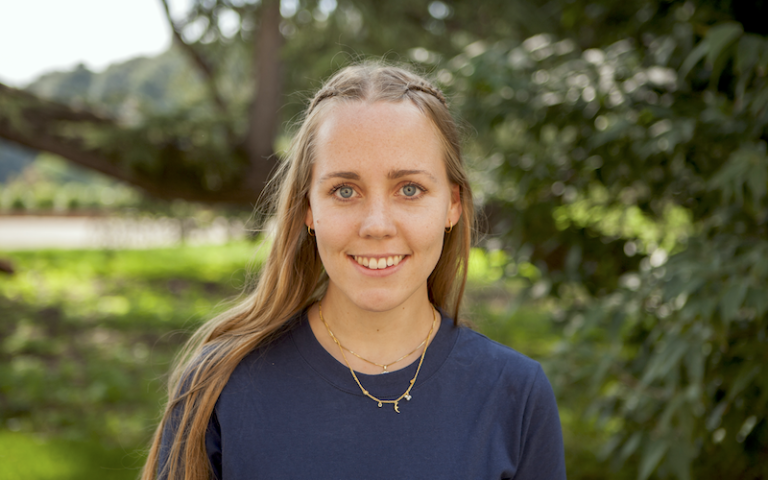Spotlight on Annika Frosch
31 January 2024
We spotlight new UCL Energy Institute Shipping Group Research Fellow, Annika Frosch

Could you tell us a bit about your background?
I am a lawyer by training, and I have always been interested in environmental law and law of the sea. My interest in these areas of law led me to pursue an LLM degree in Environment and Energy Law at the University of Oslo. When I started my PhD at the European University Institute, I became more drawn to multidisciplinary research, and I particularly like the intersection of law, policy, and natural sciences. My thesis focuses on the governance of ocean acidification, and I am exploring a governance approach which can reflect the scientific reality of such a complex problem. During my PhD I enjoyed my visits to the National University of Singapore and the Bodega Marine Laboratory (UC Davis) where I have had great exchanges with scientists that influenced my research. One of the case studies I conducted in my thesis eventually led me to UCL and specifically the Shipping Group at the Energy Institute. As I was interested in interviewing delegates in the International Maritime Organization my stay with the Shipping Group prepared me well for these encounters. During my stay at UCL I enjoyed the multidisciplinary environment and the practical relevance of the research conducted by the group which inspired me to apply.
What motivated you to study and work in the field of Energy research?
As mentioned, I was always interested in environmental law and the law of the sea. During my LLM in Oslo I became particularly interested in climate change and its negative influence on the oceans and I started looking into ocean acidification. It turned out that his topic had not been widely discussed despite having dangerous repercussions for oceanic ecosystems and endangering ecosystem services. I became particularly intrigued by governance solutions which can cater to problems that have fast developing research and technology. The shipping sector is an important contributor of CO2 but also of NOx and SOx emissions which all lead to acidification. Therefore, I wanted to further explore shipping and the International Maritime Organization as an important actor. As the shipping group, as part of the Energy Institute at Bartlett, has been working on shipping decarbonization this seemed like a natural continuation of my research interests.
What amongst your (prior) professional work best represents what you wish to contribute to the field?
I am of course still in the process of finishing my PhD, so I am only at the beginning of my professional career. I aspire to continue interdisciplinary work combining law, policy, and natural sciences, as this approach often yields more practical results. The knowledge I gained while researching my PhD has already begun to inform policy products and recommendations. More specifically, at UCL I will be working with governments at the International Maritime Organization where I will be able to directly apply my knowledge. I am happy to see that I can produce research which can be useful to policy makers and that can hopefully advance our solution finding to these daunting problems.
Could you tell us about one of the current projects and / or collaborations you are working on in the Energy Institute?
Having recently joined the Energy Institute, I am involved in two workstreams that resonate with my PhD work. I am interested in the interplay between the international and national level of governance including the different stakeholders this can involve. I will work with governments form the Caribbean region in preparation of meetings of the International Maritime Organization. I am interested to learn how strategies and action on the international level play out in this region, which stakeholders are involved, and how do States coordinate with each other. I would like to see if what should work in theory also works in practice. In addition, I would like to do more research and follow discussions within the International Maritime Organization that relate to ocean health and negative impacts on the environment. This topic has not gotten enough attention especially within the discussions surrounding decarbonization.
What are your plans for your next year of research, what projects and / or collaborations do you have in mind?
Beyond these projects, I would like to further collaborate with the Ocean Acidification Alliance at the United Nations Foundation. Together with other researchers from universities from all over the world we have started to collaborate with this organization to mainstream action against ocean acidification in different regions including Europe, North America and West Africa. This year we hope to work with different countries and encourage and support them during the establishment of ocean acidification action plans. I am very excited about this project as it ties very nicely into what I have been doing in my PhD dissertation as well as what we are doing in the International Maritime Organization.
Links
- Learn more about Annika's work - access this internal webpage.
- Learn more abour the work of the UCL Energy Institute in the field of Shipping - access this internal webpage.
Image credit: Annika Frosch
 Close
Close

